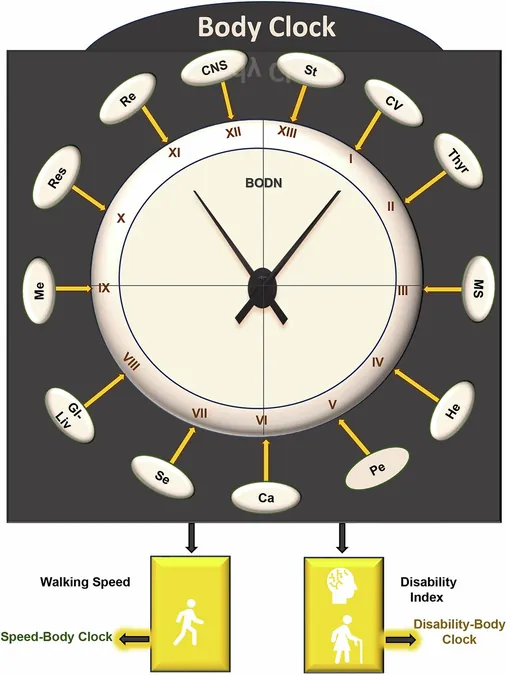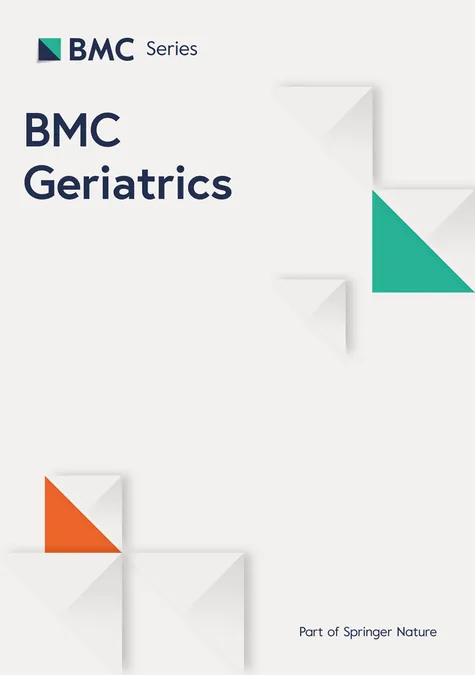
Revolutionary Tool Transforms How We Measure Biological Age – Here’s Why It Matters!
2025-05-05
Author: Liam
Unlocking the Secrets of Aging with the Health Octo Tool
Imagine having a groundbreaking health assessment tool that not only measures your biological age but also predicts your risk of disability and death more accurately than current methods. Researchers from the University of Washington School of Medicine have developed just that! In a recent study published in Nature Communications, they introduce the Health Octo Tool, which analyzes eight key metrics derived from your physical exams and routine lab tests.
Why Current Methods Fall Short
Traditional health assessments often miss the big picture. They tend to focus solely on individual diseases without considering how they interact or how even minor conditions can impact overall health, according to Dr. Shabnam Salimi, the first author of the study. This new aging-based framework opens the door to discovering new biomarkers and potential treatments targeted at prolonging life, providing a more holistic view of our health.
Introducing 'Health Entropy' – A Game Changer in Aging Research
The Health Octo Tool is grounded in the concept of "health entropy," which measures the accumulated molecular and cellular damage our bodies endure over time. This innovative approach quantifies how such damage affects our organ functions, allowing researchers to gauge overall well-being and understand individual aging rates.
Data-Driven Insights from Longitudinal Studies
To validate their findings, researchers tapped into the extensive Baltimore Longitudinal Study on Aging, alongside two additional studies encompassing over 45,000 adults. They developed what’s called a Body Organ Disease Number, reflecting the number of affected organ systems and prior health events like cancer or strokes, with scores ranging from 1 to 14.
A New Way to Gauge Individual Aging
Their findings revealed that organ systems age at varying rates, leading to the creation of the Bodily System-Specific Age metric and the Bodily-Specific Clock. Together, these quantify the intrinsic biological age of each organ and present a composite measure for overall aging. Furthermore, they developed the Speed-Body Clock to track how biological age influences walking speed, and the Disability-Body Clock to assess how aging affects cognitive and physical abilities.
Uncovering Hidden Impacts of Minor Conditions
One intriguing discovery was the significant long-term impact of seemingly minor health issues, such as untreated hypertension in youth, on aging. This suggests that early intervention could dramatically influence life expectancy and overall health.
A Digital Revolution in Personal Health Monitoring
The research team isn't stopping here. They're currently designing a digital application that will empower individuals to monitor their own biological ages alongside their healthcare providers. Imagine being able to visualize how lifestyle changes—like new diets or exercise regimens—affect not just your overall health, but the health of each organ system!
The Future of Aging Research is Here!
With the Health Octo Tool, we’re not just looking at how old we are biologically; we’re redefining the aging conversation altogether. Senior authors Daniel Raftery and Dr. Luigi Ferrucci stress the vital implications of this research in understanding and enhancing our health as we age. Stay tuned—this could very well be the future of personalized health assessments!









 Brasil (PT)
Brasil (PT)
 Canada (EN)
Canada (EN)
 Chile (ES)
Chile (ES)
 Česko (CS)
Česko (CS)
 대한민국 (KO)
대한민국 (KO)
 España (ES)
España (ES)
 France (FR)
France (FR)
 Hong Kong (EN)
Hong Kong (EN)
 Italia (IT)
Italia (IT)
 日本 (JA)
日本 (JA)
 Magyarország (HU)
Magyarország (HU)
 Norge (NO)
Norge (NO)
 Polska (PL)
Polska (PL)
 Schweiz (DE)
Schweiz (DE)
 Singapore (EN)
Singapore (EN)
 Sverige (SV)
Sverige (SV)
 Suomi (FI)
Suomi (FI)
 Türkiye (TR)
Türkiye (TR)
 الإمارات العربية المتحدة (AR)
الإمارات العربية المتحدة (AR)